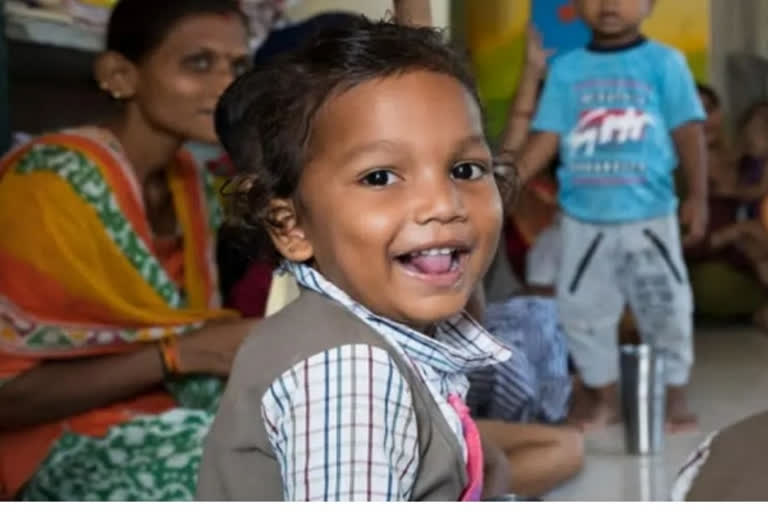Dehradun/Hyderabad: The free breakfast scheme in government schools recently launched by the Tamil Nadu government was one of the many issues discussed at UNICEF's training camp on child welfare held in Dehradun on Tuesday. Against the backdrop of ETV Bharat's recent coverage of the scheme and its impact on the students, we asked UNICEF'S Child Welfare Officer Gayatri Singh about the impact it can have on child's development.
Hinting at a seemingly successful implementation of the breakfast scheme so far, ETV Bharat asked Singh if the scheme also has the potential to counter malnutrition which still persists as a prominent issue in many parts of the country, especially among the poor and the rural lot. ETV Bharat provided the background of the ground reportage on the topic and the positive feedback from the beneficiaries, students and volunteers alike.
"The teachers that we met while reporting the matter gave us a positive review. They said children who have breakfast on a regular basis under the scheme are observed to be more active and have shown improved levels of concentration and response to learning," this correspondent said while briefing the UNICEF official, adding that the same scheme is also being effectively implemented in the government schools in Kerala.
Gayatri Singh asserted that breakfast indeed plays a pivotal role in providing the required nutrition to children, while the scheme definitely holds the potential to counter malnutrition if implemented consistently. "Breakfast plays a very important role in children's nutrition. The human brain needs energy, which requires glucose. Most of the time, the children who come to school either have inadequate breakfast or barely eat anything at all till lunchtime," she said.
Also read: From free noon meal to free breakfast in schools: TN shows the way
"The evidence that you mentioned about Tamil Nadu is absolutely right. The improvement in studies they (children) are showing is evidence of how effective school feeding programmes can be. Because of the school breakfast scheme, the immediate requirement for energy that they have is getting adequately fulfilled. It is also helping them get rid of temporary hunger which may affect their performance. We really need to feed children regular meals and because children's stomachs are smaller, they need more frequent feeding," Singh added, ensuring that the scheme has enough potential to counter malnutrition.
More than 150 journalists participated in UNICEF's training camp on child welfare held in Uttarkhand's Dehradun. The event focused on discussions and training about the spreading of misinformation in medical news and the role of journalists in countering it. Speaking on the occasion, UNICEF Head of Communication, Zafreen Chowdhury, said that misinformation is more contagious than a virus. He warned that misinformation can have dangerous consequences on public health as well.
UNICEF's CAS program on medical journalism was developed in 2014. The program was developed for students and journalists from Oxford University, Thomson Reuters News Agency, and the Indian Institute of Mass Communication. Maulana Azad National University and Himachal Pradesh Universities have also adopted it in their curriculum.



